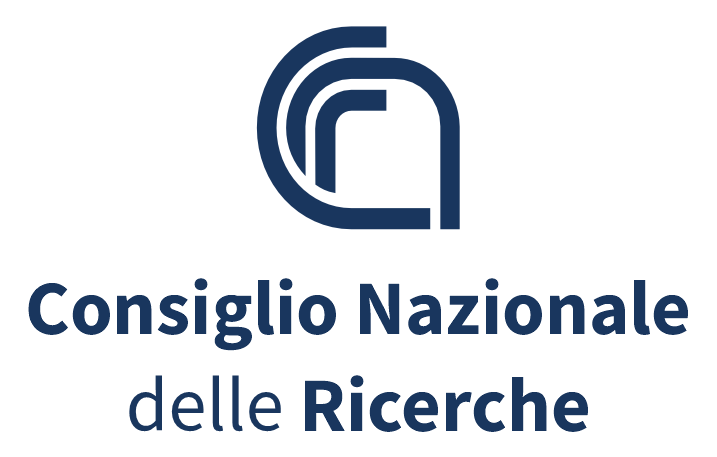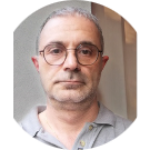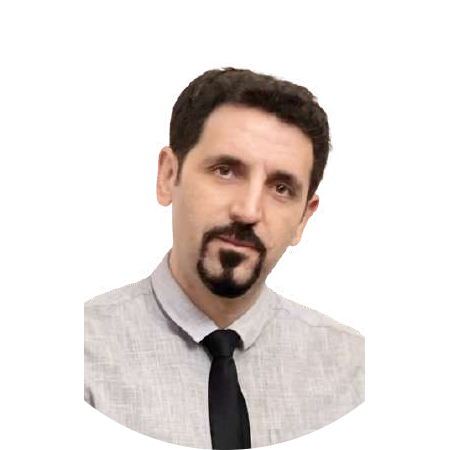

DAM4CO2 consortium brings together seven partners from universities, research institutes and companies located across four different Countries (Italy, Spain, Poland, and United Kingdom). Moreover, it consists of a balanced number of universities/university consortium (3) and research institutes (2), which guarantee a high level of research and innovation (CNR, INSTM, ITQ at Universitat Politecnica De Valencia, Swansea University, The University Of Edinburgh), and two EU-based SMEs that ensure an industrial vision for future successful development (Primalchit and Me-sep).
The National Research Council of Italy (CNR) is the coordinating institution of the DAM4CO₂ project. It is the largest public research organization in Italy with ca. 8500 employees. In DAM4CO₂, the CNR is present with two of its 88 Research Institutes, both belonging to the Department of Chemical Sciences and Materials Technology: the Institute on Membrane Technology (ITM) and the Institute of Chemistry of OrganoMetallic Compounds (ICCOM).
CNR-ITM is active in the field of membrane science, technology, and engineering for gas separation and conversion, water and liquid treatment, bioartificial organs, biotechnology, food and agriculture. CNR-ICCOM is dedicated to the development of fundamental and applied research in the fields of advanced and functional materials, renewable energies, and sustainable chemistry. In DAM4CO₂, CNR puts in place the skills in membranes preparation, characterization and modelling of Alessio Fuoco, Elisa Esposito, Elena Tocci, Marcello Monteleone and John Jansen, as well as the solid state NMR competences of Lucia Calucci and Elisa Carignani.
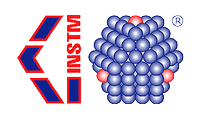 INSTM (National Interuniversity Consortium of Materials Science and Technology) is the largest consortium of its kind in Italy, drawing on the expertise of 50 universities and all those who operate in Italy in research on advanced materials and technologies. About 2000 professors, researchers, post-docs and PhD students are associated to INSTM and the number thereof is continuously increasing. In DAM4CO₂ the INSTM consortium gather the competences of Dr. Valentina Crocellà, Dr. Matteo Signorile, Prof. Silvia Bordiga at the Department of Chemistry (University of Torino), of Prof. Marco Taddei and Prof. Marco Lessi at the Department of Chemistry and Industrial Chemistry (University of Pisa) and of Prof. Ferdinando Costantino and Prof. Luigi Vaccaro at the Department of Chemistry, Biology and Biotechnology (University of Perugia). The expertise of the research unit ranges from the synthesis of materials for carbon dioxide capture to the characterization of adsorbents and catalysts, including the application of advanced methods to disclose the finest structural details and the functional behavior of the investigated samples.
INSTM (National Interuniversity Consortium of Materials Science and Technology) is the largest consortium of its kind in Italy, drawing on the expertise of 50 universities and all those who operate in Italy in research on advanced materials and technologies. About 2000 professors, researchers, post-docs and PhD students are associated to INSTM and the number thereof is continuously increasing. In DAM4CO₂ the INSTM consortium gather the competences of Dr. Valentina Crocellà, Dr. Matteo Signorile, Prof. Silvia Bordiga at the Department of Chemistry (University of Torino), of Prof. Marco Taddei and Prof. Marco Lessi at the Department of Chemistry and Industrial Chemistry (University of Pisa) and of Prof. Ferdinando Costantino and Prof. Luigi Vaccaro at the Department of Chemistry, Biology and Biotechnology (University of Perugia). The expertise of the research unit ranges from the synthesis of materials for carbon dioxide capture to the characterization of adsorbents and catalysts, including the application of advanced methods to disclose the finest structural details and the functional behavior of the investigated samples.
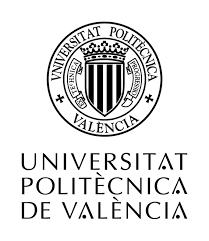 The Universitat Politècnica de València (UPV) is a public, dynamic and innovative academic institution that maintains strong links with the social environment helping students to reach out excellence. This is reflected in the UPV's position in the Shanghai Ranking, listed among the top 400 in the world in Chemistry and Chemical Engineering. FOTOHET is a research group that belongs to UPV and the Instituto de Tecnología Química (ITQ-CISC), and it is located in Valencia, Spain. FOTOHET group is leaded by Hermenegildo García, full Professor at the Instituto de Tecnología Química of the Technical University of Valencia and has been working in the field of heterogeneous catalysis with porous solids as well as in the photocatalytic production of solar fuels having published over 900 articles (H index 129 GS). Prof. Garcia is Doctor Honoris Causa from the University of Bucharest, Spanish National Research award (2021), Janssen-Cilag award of the Spanish Royal Society of Chemistry (2011), Jaume I prize for Novel Technologies (2016) and member of the Spanish Royal Academy of Natural Sciences. The research group has participated in more than 50 R&D projects related to catalysis and photocatalysis; and it is formed by national and international researchers specialized in the preparation of new catalysts based on metal oxides, MOFs, COFs and graphitic type materials among others and applied in several photocatalytic, thermocatalytic and electrocatalytic reactions.
The Universitat Politècnica de València (UPV) is a public, dynamic and innovative academic institution that maintains strong links with the social environment helping students to reach out excellence. This is reflected in the UPV's position in the Shanghai Ranking, listed among the top 400 in the world in Chemistry and Chemical Engineering. FOTOHET is a research group that belongs to UPV and the Instituto de Tecnología Química (ITQ-CISC), and it is located in Valencia, Spain. FOTOHET group is leaded by Hermenegildo García, full Professor at the Instituto de Tecnología Química of the Technical University of Valencia and has been working in the field of heterogeneous catalysis with porous solids as well as in the photocatalytic production of solar fuels having published over 900 articles (H index 129 GS). Prof. Garcia is Doctor Honoris Causa from the University of Bucharest, Spanish National Research award (2021), Janssen-Cilag award of the Spanish Royal Society of Chemistry (2011), Jaume I prize for Novel Technologies (2016) and member of the Spanish Royal Academy of Natural Sciences. The research group has participated in more than 50 R&D projects related to catalysis and photocatalysis; and it is formed by national and international researchers specialized in the preparation of new catalysts based on metal oxides, MOFs, COFs and graphitic type materials among others and applied in several photocatalytic, thermocatalytic and electrocatalytic reactions.

Chemistry at Swansea University offers an excellent environment for learning and research at our purpose-built laboratories which draw on expertise from our Engineering, Medical and Science departments.
The newly opened (2017) Department of Chemistry at the Faculty of Science and Engineering of Swansea University has a steadily growing number of staff, and a large number of national and international Post-Docs, PhD, Master and bachelor students. The Department is composed of six between associate and full professors and ten between lecturers and senior lecturers. The institution has excellent, purpose-built modern laboratories with access to a wide range of instrumentation, ideal for organic synthesis and the developing of the proposed research. Suitable office space is available for the project with computer and IT support. These research efforts are supported by a strong and tight collaboration with the College of Engineering, which ranked second in the UK in research environment.

The University of Edinburgh, founded in 1582, is the sixth oldest university in the English-speaking world and one of Scotland's ancient universities. Consistently ranked one of the top 50 universities in the world, the University was recently ranked 22 in the 2024 QS World University rankings. One of Britain’s leading research universities, Edinburgh is also ranked 4 in the UK for research power, based on the 2021 Research Excellence Framework (REF) by Times Higher Education. The College of Science and Engineering (CSE) is one of the three academic Colleges at the University and, with nearly 2,900 staff and 10,800 students is one of the largest science and engineering groupings in the UK. It consists of seven academic schools (Biological Sciences, Chemistry, Engineering, GeoSciences, Informatics, Mathematics and Physics & Astronomy) and two Centres of Excellence (EPCC and The Bayes Centre). In the most recent (2021) REF results, CSE was classed as world-leading in terms of the originality, significance and rigour of its research – with 96% of research outputs classed as either world-leading or internationally excellent.

Me-Sep is an innovative research and engineering company specializing in membrane technology. We provide technical solutions for researchers and engineers, with a focus on lab and pilot scale projects. Our team of specialists designs and manufactures custom-made machines for the membrane industry, supporting businesses in technology transfer for membrane production, module manufacturing, and construction of separation systems. For our customers, we offer support in technology transfer for flat sheet and hollow fiber membrane production, membrane module manufacturing, and construction of separation systems for gas and liquid mixtures. Me-Sep team specializes in capillary/hollow fiber membrane spinning for UF/MF/NF applications, TFC coating on flat sheet and capillary membranes, development of spinning, casting, and coating equipment, QC tests, and filter potting systems.
PRIMALCHIT SOLUTIONS S.L in a Technology-Based Innovative Enterprise (EBT for its acronym in Spanish) born in 2019 in Valencia, Spain. Its business strategy is mainly focused on technology research and development as well as strategic consultancy for project deployment under the principles of “Sustainable or Green Chemistry”. Owning two patents under PTC scope, Primalchit has contributed in projects to develop catalysts for NOx reduction in static effluents, photochemical processes for the elimination of combustion flue gases, and catalysts for low-temperature methane decomposition. Primalchit’s founding team has over 30 years of background developing Innovation Projects. Moreover, PRIMALCHIT counts with senior researchers with experience in materials chemistry, energy storage and environmental technology. PRIMALCHIT participates in hydrogen related projects in collaboration with reference technologic centers and in the last years, PRIMALCHIT has been awarded with national projects related to hydrogen production where its role is the scale-up of materials and electrode development. PRIMALCHIT participates in the European project DAM4CO₂ leading the working package aimed at Multiscale Modelling & Life Cycle Assessment (LCA). It’s role, is in the LCA to determine the environmental impact of the proposed technology.
